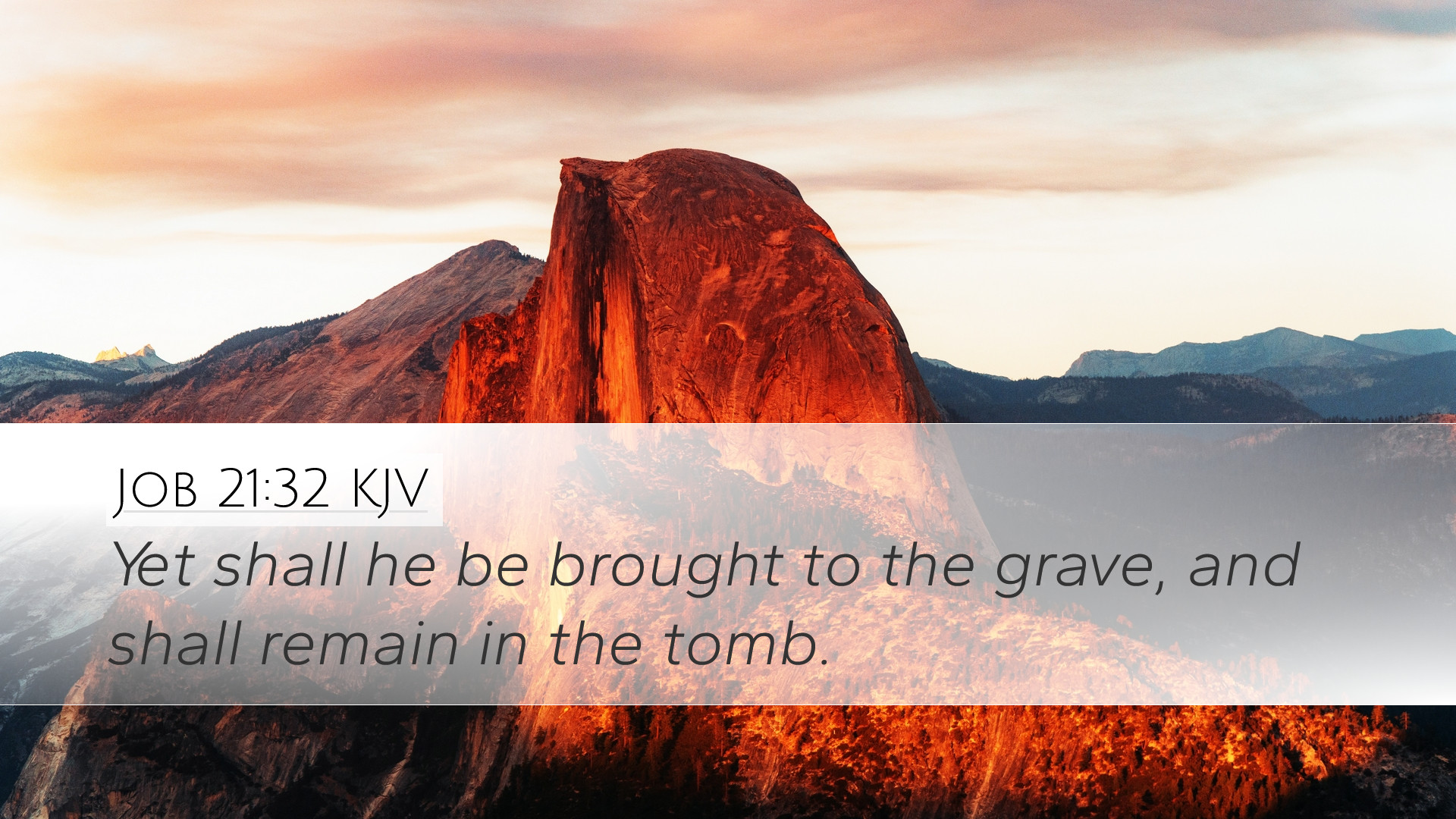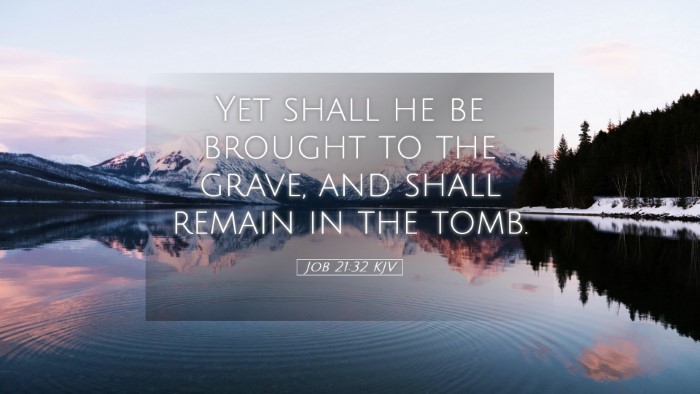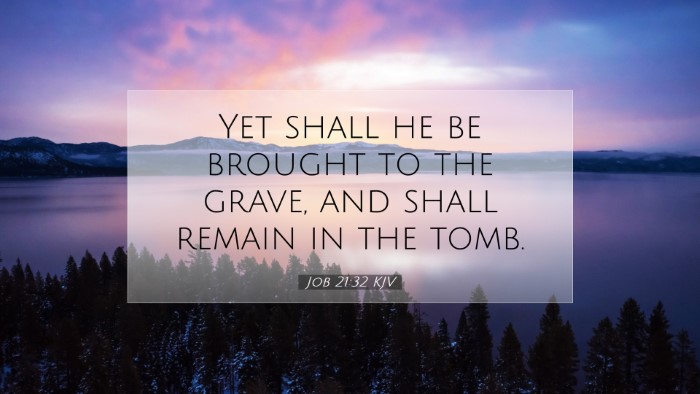Commentary on Job 21:32
Job 21:32 states, "Yet shall he be brought to the grave, and shall remain in the tomb." This verse encapsulates significant themes of mortality, divine justice, and the human condition, which have been pivotal in biblical discourse and theological reflection.
Overview of Context
The Book of Job addresses profound questions of suffering, justice, and the nature of God. Job, a righteous man, endures immense suffering and seeks to understand his predicament within the framework of divine justice. In this chapter, Job responds to his friends' accusations that his suffering is the result of sin, asserting instead that the wicked often prosper and face death like everyone else.
Exegesis of Job 21:32
This verse highlights a universal truth about human existence—the inevitability of death. Commentators like Matthew Henry and Albert Barnes stress that death is a great equalizer.
-
Matthew Henry notes that even the wicked, who appear to flourish in life, meet the same end as the righteous, emphasizing that earthly success does not equate to divine favor.
-
Albert Barnes highlights that the grave serves as a final resting place, where distinctions of earthly life are rendered moot, reinforcing the idea of mortality's universality.
-
Adam Clarke offers insight into the significance of the tomb as a symbol of life's temporary nature, reminding us that all earthly pursuits are transient when confronted with death.
Theological Reflections
Within this verse, deeper theological themes can be discerned:
-
Mortality and Human Condition: Job's assertion serves as a somber reminder of the human condition. All individuals, regardless of their moral standing, are ultimately subject to the inevitability of death. This perspective encourages humility and the recognition that life is fleeting.
-
Divine Justice: The statement invites reflection on the nature of divine justice. Job's predicament challenges the simplistic view that suffering always correlates with divine punishment. Rather, he suggests that death itself is the great equalizer, proposing that there exists a divine purpose beyond human understanding.
-
The Nature of Hope: In contemplating the grave, one may also reflect on the nature of hope. While mortality is a certainty, the biblical narrative often points towards resurrection and eternal life, inviting a shift from despair to hope.
Pastoral Applications
For pastors and spiritual leaders, Job 21:32 underscores vital applications:
-
Comfort in Grieving: This verse can be a source of comfort for those grieving. It acknowledges the reality of death while affirming that all are brought to the grave, thus normalizing grief and providing solace in shared human experience.
-
Challenge to Prosperity Gospel: Job’s words confront the prosperity gospel, which incorrectly equates material success with divine favor. Pastors can use this text to teach that suffering does not always indicate divine displeasure.
-
Hope Amidst Mortality: This passage can be a launching point for discussing hope in the resurrection. While the grave marks an endpoint, it also serves as a prelude to eternal life in Christian belief, a perspective that can greatly uplift a congregation.
Conclusion
Job 21:32 serves as a powerful reminder of our shared mortality, a critique of the simplistic dichotomy of good and evil in worldly success, and a hopeful assertion in the face of death. Through the insights of esteemed biblical commentators, this verse challenges scholars, theologians, and pastors alike to grapple with the profound existential themes inherent in human existence, ultimately drawing us toward a deeper understanding of God’s justice and mercy.


